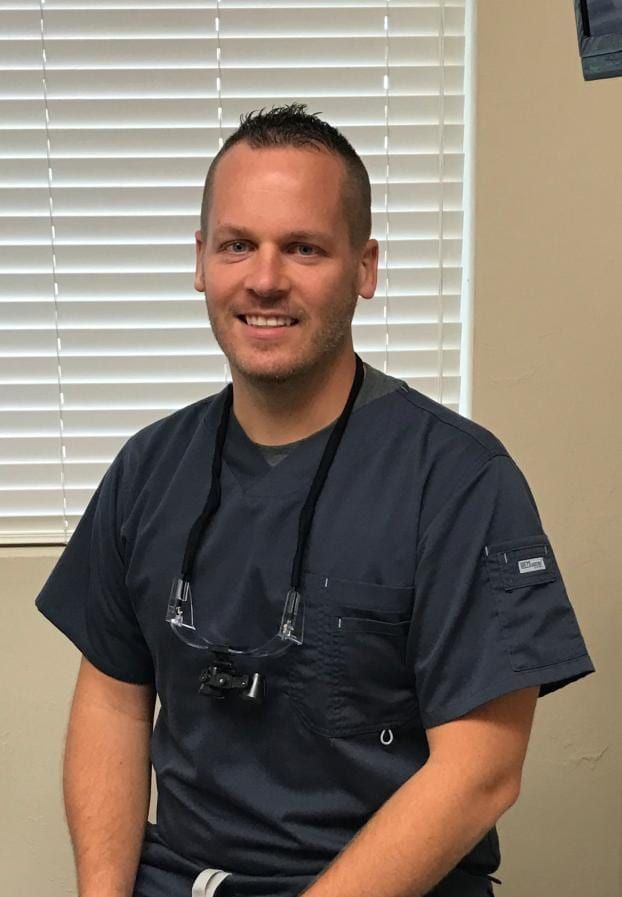Dental emergencies often happen when least expected, and knowing how to recognize and handle them can make a significant difference. Dr. Jonathan McCartney of McCartney Dental in North Port, FL, offers practical insights on what constitutes a dental emergency, how to respond, and when to seek immediate care.
Understanding Dental Emergencies
Not all dental issues require urgent care, but some situations do warrant immediate attention. A dental emergency is generally any situation that causes intense pain, bleeding, swelling, or the loss of a tooth. These cases can stem from various sources, such as accidents, infections, or underlying dental issues. Addressing them promptly not only relieves discomfort but can also prevent further complications.
Here are some common dental emergencies and how to identify them:
- Severe Toothache
A sudden, sharp pain in a tooth could signal a deep cavity, an abscess, or even nerve damage. If you experience pain that doesn’t subside, this might be a sign of a serious underlying condition requiring urgent treatment. - Broken or Chipped Tooth
A broken or chipped tooth can expose the inner layers, increasing the risk of infection. Immediate treatment is essential to save the tooth and reduce the chances of infection. - Knocked-Out Tooth
A knocked-out tooth requires immediate attention as it might still be possible to reattach it if treated quickly. Handle the tooth carefully, avoid touching the root, and place it in milk or a saline solution before heading to the dentist. - Dental Abscess
An abscess is a localized infection in the gums, usually around the root of a tooth. Left untreated, an abscess can lead to severe complications, including the spread of infection to other parts of the body. - Lost or Damaged Filling/Crown
A missing filling or crown can leave the tooth vulnerable to damage or decay. While it may not seem like an immediate emergency, prompt attention helps prevent discomfort and further deterioration. - Object Lodged Between Teeth
Sometimes, objects get stuck between the teeth, causing pain and irritation. Avoid using sharp objects to dislodge them as this can damage the gums and teeth. If flossing doesn’t help, it’s best to seek professional help.
Steps to Take During a Dental Emergency
Knowing how to respond in a dental emergency can protect your oral health. Here’s what Dr. McCartney recommends for a few common situations:
- For Toothaches
Rinse your mouth with warm salt water to clean the area and reduce inflammation. Over-the-counter pain relievers can provide temporary relief, but avoid placing aspirin directly on the gum or tooth as it can cause burns. - For a Knocked-Out Tooth
Retrieve the tooth, holding it by the crown (top) without touching the root. Rinse it gently with water if it’s dirty but avoid scrubbing or removing attached tissue fragments. If possible, try to reinsert the tooth into its socket. If that’s not feasible, place it in milk or saline and head to the dentist immediately. - For Broken or Chipped Teeth
Rinse your mouth with warm water to clean the area and apply a cold compress to reduce swelling. If possible, save any broken pieces of the tooth and bring them to your dental appointment. - For Dental Abscesses
Rinse with warm salt water several times a day to alleviate discomfort. However, it’s critical to seek emergency dental care as soon as possible to prevent the infection from spreading. - For Lost Fillings or Crowns
Temporary dental cement or sugarless gum can provide a short-term fix, covering the area to reduce sensitivity until you can see your dentist. - For Objects Lodged Between Teeth
Gently use dental floss to remove the object, being careful not to push it deeper. If this doesn’t work, don’t attempt to force it out—call a dental professional instead.
When to Visit the Dentist vs. the Emergency Room
In some cases, it’s challenging to determine whether you should go directly to the dentist or visit the nearest emergency room. While dental emergencies are often best handled by a dentist, certain symptoms may require immediate medical attention.
For instance, if you experience severe swelling, difficulty breathing, or uncontrollable bleeding following an oral injury, these are signs that an emergency room visit is warranted. Conversely, most dental issues, even emergencies like tooth loss or abscesses, are usually managed more effectively by a dentist with specialized tools and expertise.
Preventing Dental Emergencies
While some dental emergencies are unavoidable, there are steps you can take to reduce your risk:
- Wear a Mouthguard
If you play contact sports or grind your teeth at night, a custom-fitted mouthguard can protect your teeth from potential injuries. - Avoid Hard Foods
Biting down on hard candies, ice, or even popcorn kernels can result in chipped or broken teeth. Be cautious with these types of foods to avoid unnecessary damage. - Practice Good Oral Hygiene
Consistent brushing, flossing, and regular dental check-ups prevent decay and help catch potential issues before they escalate into emergencies.
Why Prompt Treatment Matters
Addressing dental emergencies swiftly can save you from greater discomfort, higher treatment costs, and more extensive dental work in the future. Swift action in emergencies like a knocked-out tooth, for example, can often make the difference between saving or losing that tooth.
By knowing when and how to react, you’re taking proactive steps to maintain both your oral health and overall well-being. Emergencies can be unsettling, but having a clear action plan provides a sense of control and confidence.
Preparing for Dental Emergencies
Having a plan for dental emergencies is crucial. This includes knowing how to contact your dentist after hours, keeping basic supplies like gauze, salt, and over-the-counter pain relievers on hand, and understanding what constitutes an emergency.
Additionally, some dental offices, like McCartney Dental, provide emergency contact options for patients. These contacts ensure that you can quickly reach a professional and receive guidance on handling your situation effectively.
Safeguarding Your Smile
Recognizing dental emergencies and knowing how to respond can protect your smile and prevent unnecessary complications. Dr. Jonathan McCartney emphasizes that prompt and appropriate action can mean the difference between saving a tooth and requiring more intensive treatment.
McCartney Dental in North Port, FL, is committed to providing top-notch emergency dental care. If you’re ever unsure whether you’re facing a dental emergency, don’t hesitate to reach out—your dental health is too important to wait.
Sources:
- Tavares, M., Lindefjeld, J., & Glick, M. (2019). Dental trauma: Prevention and management in dental settings. Journal of Clinical Dentistry.
- Neely, A. L., & Walter, M. H. (2017). Dental emergencies in primary care: A review of common cases. Primary Dental Journal.
- Gill, D. S., & Patel, A. (2020). Oral healthcare and emergency response. American Journal of Dentistry.


